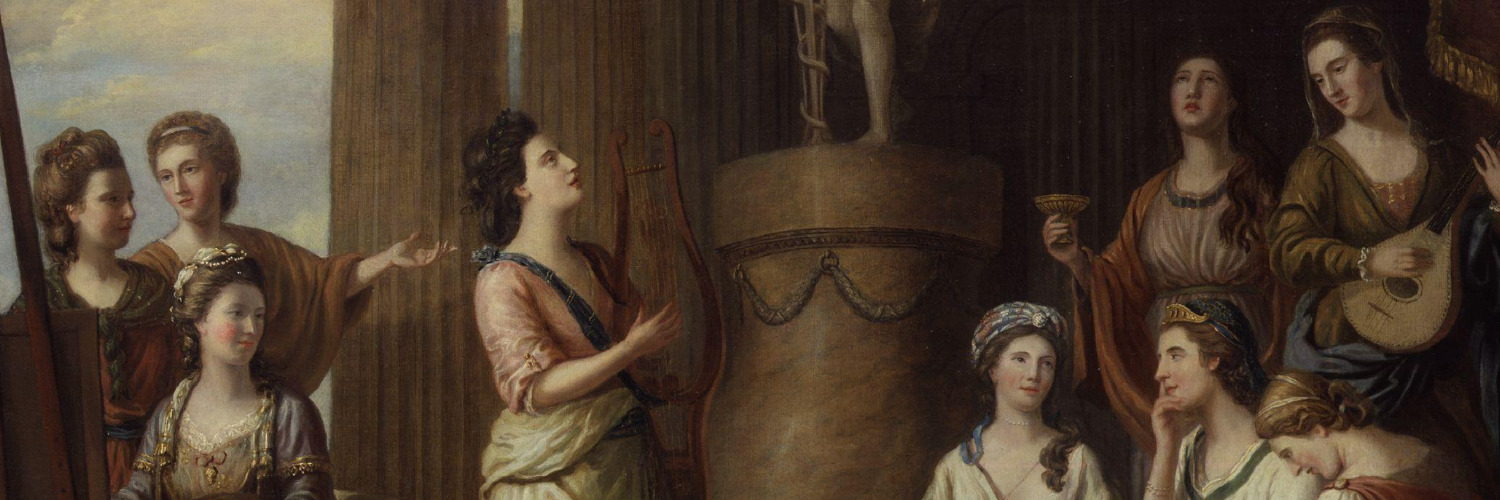- Physical form: One sheet folded into 2 leaves (18 x 22.5 cm)
- Cover: Miss Rickards / by favour of / Mr Hunt / Birmingham
- PM: None
- WM: T. ST[x]INS / 1802
- SM: Misc MS 4352
As I am resolved not to put off writing to you till next year, I find it incumbent upon me to begin my letter, or 1803 will be upon me before I am aware. I am happy to hear so good an account of you; that is to say that you are plunged in all manner of dissipation, this is the report that goes out concerning you, & indeed your own letter partly confesses it. I hope you are as strong as Hercules, as indeed every young lady ought to be in order to encounter the various labours & dangers they have to undergo. I would not have you think we are idle here, the girls have had several dances, Mr Lindsay of the green
had a splendid one the other night, when they danced thirty couple & kept it up till three in the morning. We are ourselves just returned from Mr Carr’s, where we have been spending a few days in their new house,
they would have been very pleasant ones had they not been clouded by Mrs Carr’s indisposition, who was scarce able to join the family circle & suffered a good deal of pain from a sore breast. She enquired affectiona
tely
[fol 1v] after you. I would have you to know our female book society flourishes greatly, we are now eighteen, & have three candidates to ballot for, the next meeting, so that as our number is but twenty, one must be black-balled, we are all caballing to determine which it should be. Several books are coming out now which will attract attention. Hayley’s life of Cowper will be interesting[.] I should wonder tho how he could draw it out to two Quarto Volumes, only that I know Hayley has a good hand at spinning.
Darwin’s Poem which he left unfinished we expect to be entertaining & whimsical & rich in harmony & wild in system like all his other works
—Miss Hayes’s female Biography will interest our sex,
but one should read a work of that kind with more pleasure if unfortunately those women who have been most famous, had not been often at the same time most infamous. Pericles, you know, told the ladies of Greece somewhat harshly “As for you, the best line of conduct you can pursue is not to make yourselves talked of one way or other” The present times are more liberal to women, but still, even in England, if you were to reckon up the women whose names are generally known, you would find the greater part were so rather for vice than virtue—
[fol 2r] We are going to have a loss here by which the Birmingham people will gain, I mean that of Mr Kentish,
& I hope they do, as they ought, value the sacrifice, for he seems to feel with great sensibility the quitting his connections here. You know no doubt that Mr Belsham
has undertaken both parts of the day— We have plenty of travelers now returned from France, all admiring in various ways. Mr Sutton Sharpe from the Grecian antique is turned an adorer of the Egyptian antique, who are now the first people In the world ^with him^.
Mr Sam Rogers deals chiefly [tear] manners & anecdote, & Mrs Opie
seems mor[e seal tear] charmed with the great man— As you [seal tear] slipped the Christmas, I suppose it will be a long time before we see Mrs Rickards & yourself at Newington but whenever the time does come, I need not say how much pleasure it will give us. In the mean time may health & pleasure attend your steps. Mr Barbauld joins in most affectionate remembrances to you both & in cordial respect to Mr Hunt
——
I am dearest Lydia
Your affectionate friend
Dec 29th

